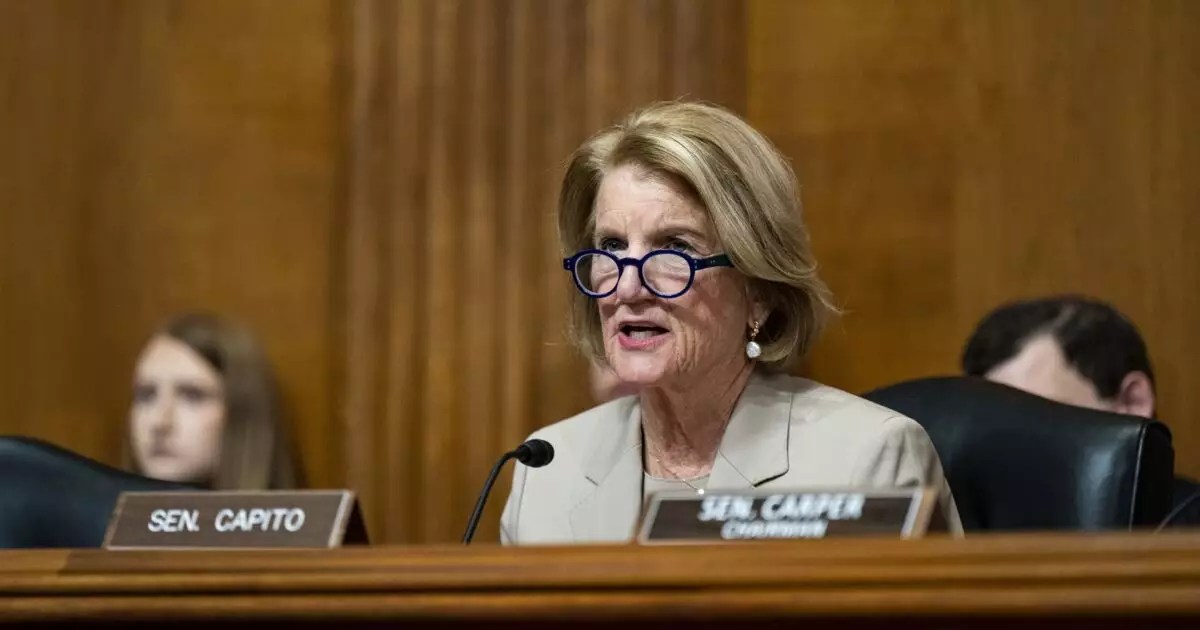The Accelerating Deployment of Versatile, Advanced Nuclear for Clean Energy Act has recently passed in the U.S. Senate and is on its way to President Biden’s desk for signing. This legislation is expected to stimulate nuclear power production in the country, signaling a step towards a more sustainable energy future. The bipartisan nature of the bill has garnered support from key figures in the Senate, such as Sen. Shelley Moore Capito, who highlighted the importance of encouraging innovation and investment in nuclear technologies within the nation’s borders.
The bill, which received an overwhelming 88-2 vote in the Senate, aims to reduce regulatory costs for companies looking to license advanced nuclear reactor technologies. Additionally, it directs the Nuclear Regulatory Commission to establish an accelerated licensing review process for the construction of reactors at existing nuclear sites. This streamlined licensing process is of particular interest to the power generation industry, which often relies on bond financing for large-scale projects.
The passage of this legislation is complemented by the U.S. Department of Energy’s commitment to fund up to $900 million to support the initial deployments of light water Small Modular Reactor (SMR) technologies. SMRs offer scalability options, ranging from tens to hundreds of megawatts of production capacity, and utilize various coolant options such as light water, gas, liquid metal, or molten salt. Their smaller footprints and capital investment requirements make them an attractive option for future nuclear power plant investments.
Industry experts, including Maria Korsnick, the president and CEO of the Nuclear Energy Institute, view the Accelerating Deployment of Versatile, Advanced Nuclear for Clean Energy Act as a crucial step towards modernizing the NRC and facilitating the review of upcoming applications for license renewals and next-generation nuclear deployments. With the U.S. expected to need 700-900 gigawatts of additional clean, firm capacity to achieve net-zero emissions by 2050, nuclear power is increasingly seen as a viable option for meeting these ambitious climate goals.
Sen. Sheldon Whitehouse emphasized that the passage of the bill will not only strengthen the nuclear workforce but also aid in the deployment of new advanced reactors by removing regulatory barriers and promoting the reuse of Brownfield sites for transitioning from coal to nuclear energy. The recent launch of the Unit 4 nuclear reactor at Plant Vogtle in Georgia, following years of construction, showcases the ongoing commitment to advancing nuclear technology in the U.S.
However, not all nuclear projects have seen smooth progress, as evidenced by the cancellation of plans to build an SMR by the Utah Associated Municipal Power Systems in Idaho Falls. This highlights the complexities and uncertainties surrounding nuclear energy development, underscoring the importance of robust regulatory frameworks and financial support to ensure the successful deployment of next-generation reactors.
The Accelerating Deployment of Versatile, Advanced Nuclear for Clean Energy Act represents a significant milestone in the journey towards a more sustainable and carbon-neutral energy landscape in the U.S. By promoting innovation, streamlining regulatory processes, and supporting the development of advanced nuclear technologies, this legislation paves the way for a future powered by clean and reliable nuclear energy.


Leave a Reply